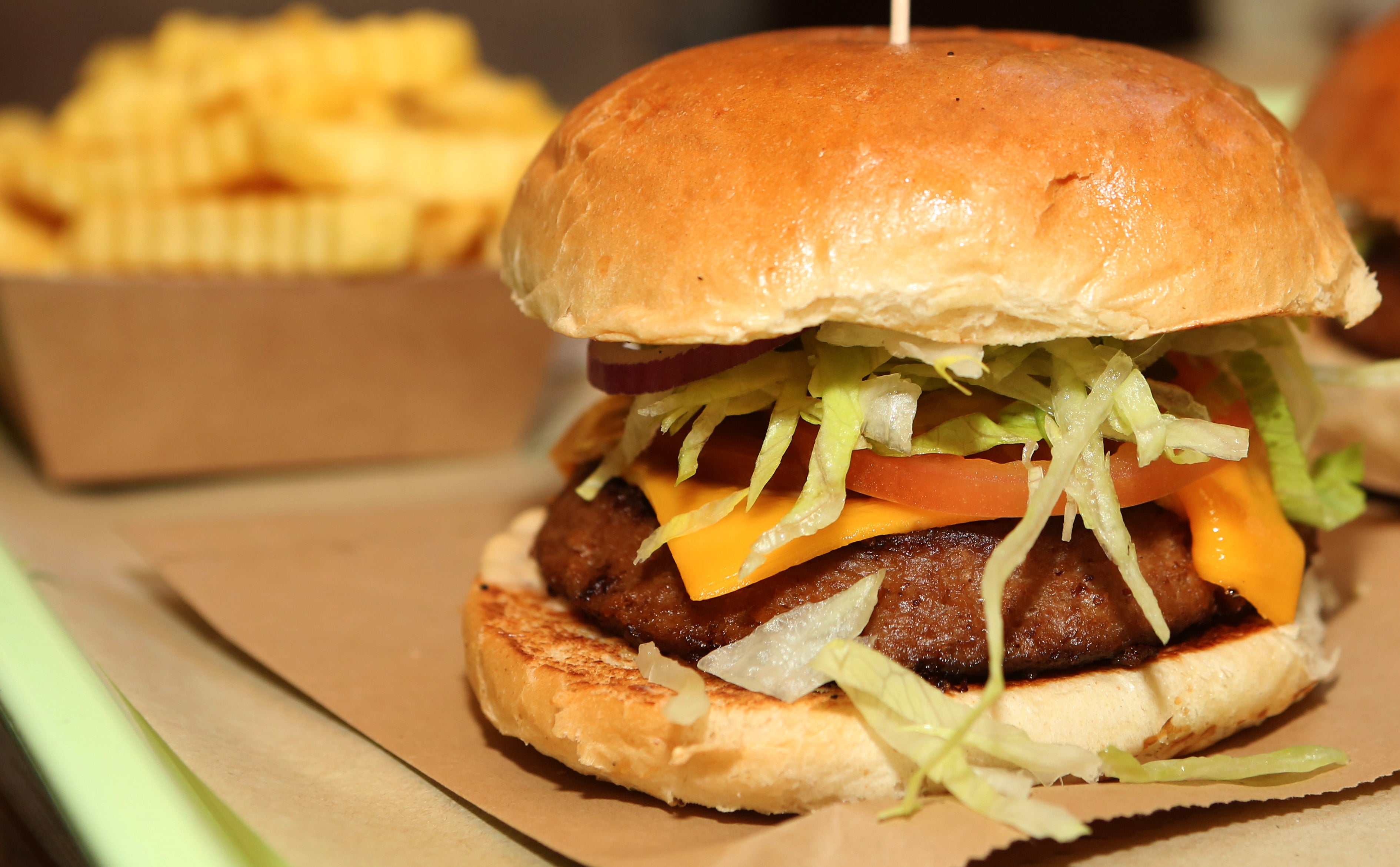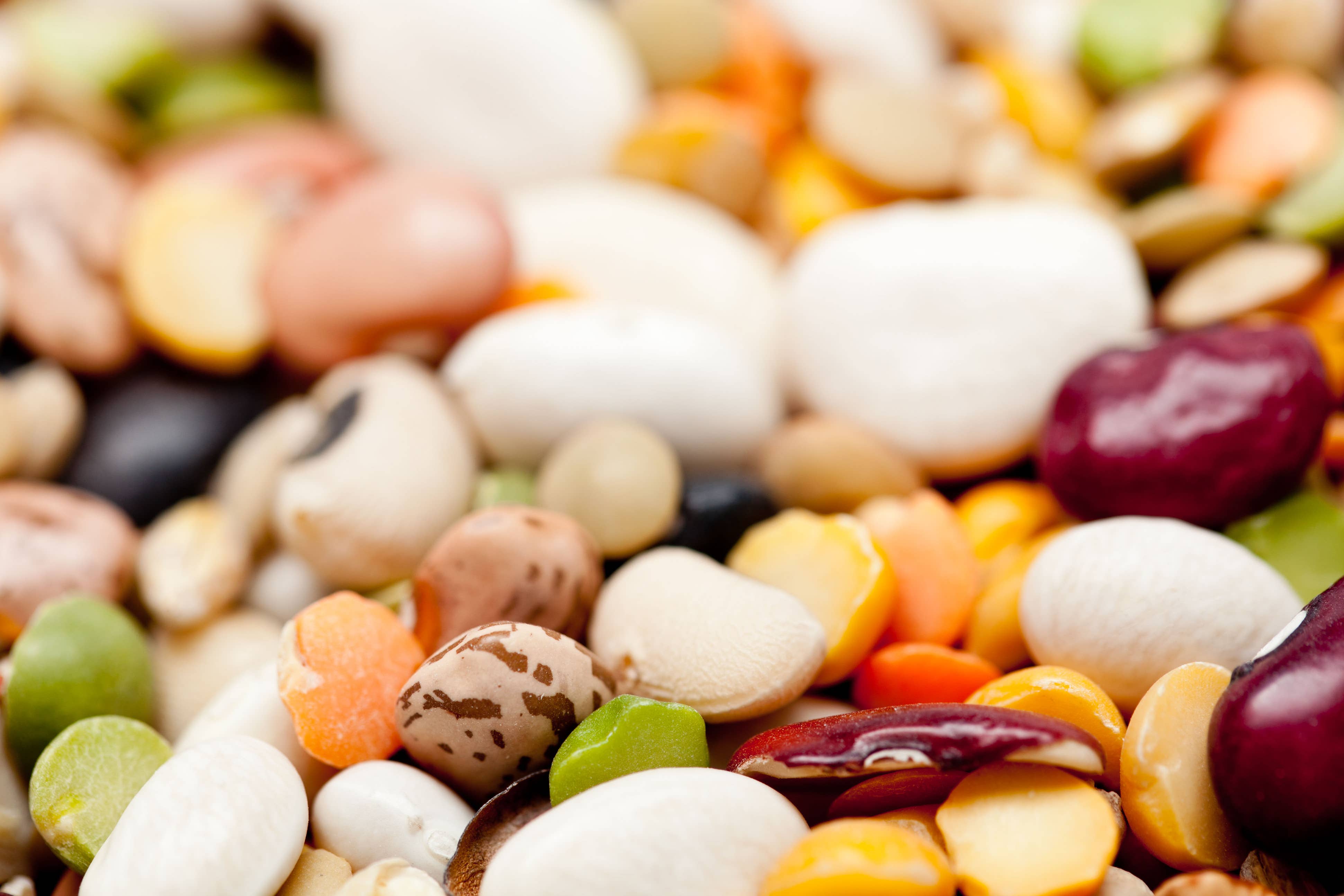Beans over burgers: Experts rank the impact of meat and milk alternatives
Lab-grown meat emissions can be as high as those of beef burgers

Your support helps us to tell the story
From reproductive rights to climate change to Big Tech, The Independent is on the ground when the story is developing. Whether it's investigating the financials of Elon Musk's pro-Trump PAC or producing our latest documentary, 'The A Word', which shines a light on the American women fighting for reproductive rights, we know how important it is to parse out the facts from the messaging.
At such a critical moment in US history, we need reporters on the ground. Your donation allows us to keep sending journalists to speak to both sides of the story.
The Independent is trusted by Americans across the entire political spectrum. And unlike many other quality news outlets, we choose not to lock Americans out of our reporting and analysis with paywalls. We believe quality journalism should be available to everyone, paid for by those who can afford it.
Your support makes all the difference.People who want to go vegan and ditch meat and dairy would be better switching to beans and peas than opting for veggie burgers, a study has found.
Experts looked at several factors when considering 24 meat and milk alternatives, including their impact on health, the environment and their cost.
They found that natural plant-based foods such as peas, soybeans and beans performed best across all the domains.
In comparison, processed foods such as veggie burgers, meat replacements tofu and tempeh, and plant milks were associated with fewer climate benefits and greater cost than unprocessed foods – though they were still better than animal products.
Bottom of the list was lab-grown meat, which is not yet sold in the UK for human consumption.
Writing in the journal Proceedings of the National Academy of Sciences (PNAS), researchers from Oxford and University College London suggested that replacing all meat or dairy in high-income countries with the same calories from meat or milk alternatives could cut early death by up to 5% to 6%.
“Among the meat alternatives, the largest reductions were for peas (6.1%), followed by tempeh, beans and soybeans (5.1% to 5.7%), veggie burgers and tofu (4% to 4.3%), and veggie sausages and veggie bacon (3.5% to 3.6%),” they said.
“Among the milk alternatives, the largest reductions were for soybeans (5.2%), followed by almond milk.”

Most of the changes in chance of death were linked to increases in fibre (44%), which is good for health, followed by reductions in areas such as bad cholesterol as well as increases in healthy fats and the mineral potassium.
Researchers said that if all calories from meat or dairy were replaced with alternatives, then people tended to have a lower fat diet and more fibre.
On the climate, the experts said the livestock sector is responsible for the majority of all food-related greenhouse gas emissions and for about 20% of greenhouse gas emissions overall.
“Without dietary changes toward more plant-based diets, the environmental impacts of the food system are projected to pose serious challenges for efforts aimed at keeping global warming to below 2C and could exceed other key planetary boundaries that attempt to define a safe operating space for humanity on a stable Earth system,” they said.
They added: “Our findings suggest that unprocessed plant-based foods such as soybeans, peas, and beans are best suited for replacing meat and dairy in high-income countries, and performed well on all dimensions.
“In comparison, processed plant-based foods such as veggie burgers and plant milks were associated with less climate benefits and greater costs than unprocessed foods, but still offered substantial environmental, health, and nutritional benefits compared to animal-source foods.”
The team concluded that choosing legumes over meat and milk would reduce “nutritional imbalances” in high-income countries like the UK by half, premature death – in particular from diet-related diseases – by a tenth, the environmental impact of diets by more than half, and costs by more than a third.
Dr Marco Springmann, from the Environmental Change Institute at Oxford, who led the study, said: “Reducing meat and dairy in high-income countries is essential for limiting climate change, biodiversity loss, and improving health.
“Our study shows that a range of foods and food products exist that would have multiple benefits when replacing meat and dairy in current diets.”
Dr Springmann said the “surprising runner-up” to beans and peas was tempeh, a traditional Indonesian food made from fermented soybeans, which retains many of the nutritional properties of soybeans without much processing or additives.
“This and the relatively low cost gave it an edge over more processed alternatives such as veggie burgers,” he said.
The researchers said that, at current technologies, lab-grown meat emissions can be as high as those of beef burgers, at up to 40,000 times its cost and just as bad for health.
Dr Springmann added: “Public investments in both lab-grown meat and ultra-processed burger patties look like tough sells when considering their relative impacts and available alternatives.”